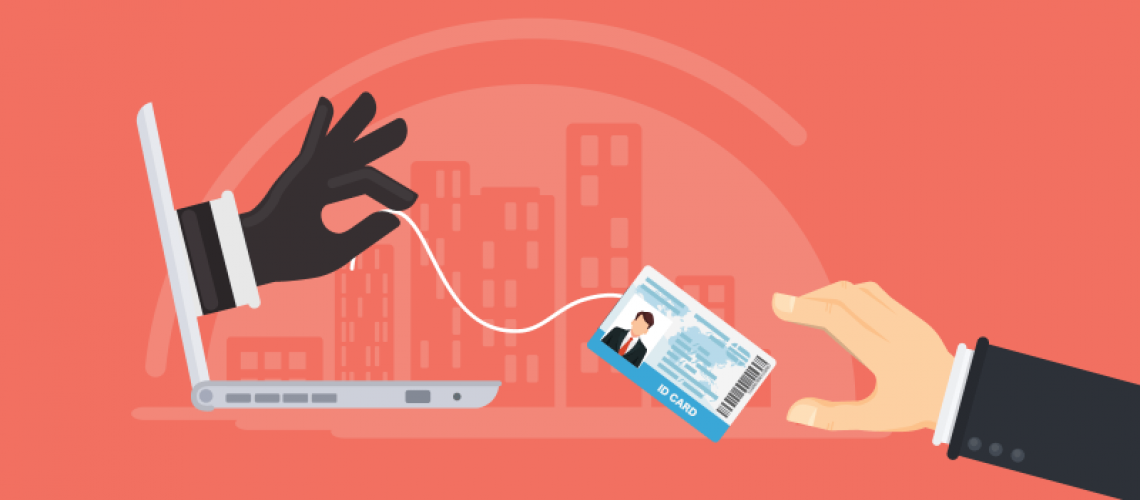Don’t Become a Victim of Identity Theft Fraud :-
- Identity Theft Frauds involves in misuse of individual personal details to commit crime. Our details (i.e. Driver’s License, Voter Card, Aadhar Card, PAN Card, Passport & Bank Accounts) are valuable to criminals and can be misused by them. They even sell your information to other scammers for further illegal use.
- There are many types of Identity Theft Frauds.
- Having your identity stolen can be both financially and psychologically distressing. It can take months to recover your identity and the effect of having it stolen can last for few years.
- Remember: Giving away personal information to a scammer can be just as bad as giving away cash. Keep your personal details to yourself and keep them safe and protected.
How the Scammers do the Identity Theft :-
- Phishing: A scammer contacts you out of the blue via email, phone, Facebook or text message pretending (Impersonation) to be from a legitimate business such as a bank, phone or internet service provider. They direct you to impersonated version of the business’s website asking for your personal details to verify customer records. For Example www.america.com might be spelled as www.arnerica.com (m is replaced by rn).
- They may call imitating a credit card company claiming that someone is trying use your credit card. The scammers simulates a real call, mimic bank staff and ask for your account and security details. In either case, the scammer captures whatever information you write on the link provided and then uses it to access your accounts.
- Fake Surveys/ Fake Feedbacks/ Lottery : Scammers offer prizes or rewards such as gift cards to well-known establishments in return for completing an online survey. The survey requires you to answer a range of questions including disclosure of important identification and banking details.
- Malware: Using the lure of “something for nothing,” fraudsters attempt to trick their would-be victims into downloading free software from the Internet. What the victims might not realize is that the free downloaded software might include malicious software, or malware, that can give the scammers access to the victims’ computers or entire networks.
Types of Indent Theft Frauds by Scammers :-
- Scammers steal your personal details to commit fraudulent activities like making un-authorised purchases on your credit card, or using your identity to open bank or telephone accounts.
- Credit card fraud: Using someone else’s credentials apply for a credit card to make fraudulent purchases
- Employment or tax-related fraud: Using someone else’s PAN number and other personal information to gain employment or deposit / transact large amounts in bank
- Phone or utilities fraud: Using another person’s personal information to open a cell phone or utility account
- Bank fraud: Using someone else’s personal information to take over an existing financial account or to open a new account in someone else’s name
- Loan or lease fraud: Using someone else’s personal information to obtain a loan or lease, Usually in this cases which have recently reported its evident that both bank officials and the Scammers are hand in glow
- Government documents or benefits fraud: Using someone else’s personal information to obtain government benefits
How to recognise the Identity Theft Fraud :-
- Your bank financial statement or bank statements shows activities that you don’t recognise, such as transactions or purchases or withdrawals you didn’t do before.
- Your credit report shows activities that you don’t recognise such incorrect payment information about paying bills on time or not being paid.
- You receive a call from collection agencies about accounts that do not exist or purchase you didn’t make.
- Creditors contact you to inform you that you have been denied or approved for credit card that you didn’t apply.
How to safeguard yourself being an Identity Victim :-
- Try not to open any Short Links that have been sent via email or SMS and insist that you logon to official websites.
- Have Updated Antivirus software both on PC and Mobile Phone.
- Don’t communicate about financial / password information on email or SMS.
- Try not to post D.O.B. Birthplace or Mailing Address and other identity on Social Media Platforms.
- Try to change passwords periodically and do not have the habit of having same format of password for all applications that you have.
- Periodically check the Bank Statements and Credit Statements.
- Whenever you give Xerox copy of the PAN Card / Aadhar Card Etc , try to mention the purpose for what the Xerox copy was given.



